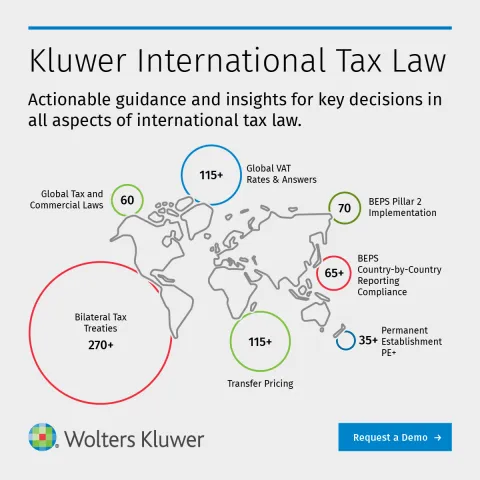Announcement of the final BEPS action plan
October 5, 2015
Today at 2 pm the OECD announced the final BEPS action plan on a live webstreamed news conference.
Though this was very high level, it did not seem as though the final versions of the 15 action plans contain any significant surprises.
For me personally, I found the plans to ensure effective implementation the most news worthy.
National implementation:
The OECD plans a global tour within the next 3 months to countries and organisations such as the IMF and paragovernmental organisations to get continued political support for the adopted action plans. This will allow effective monitoring of the actions which require national implementation. In addition, the adoption of minimum standards will ensure uniformaty of BEPS implementation.
TP implementation:
Adoption of the proposals into the TP Guidelines. Basically done with the next publication. Country by Country reporting: effective as of 1-1-2016. A planner review in 2020 is most likely to extend the reporting to MNE’s below 750 mio.
Treaty implementation:
Multilateral instrument negotations between 90 countries are to start in the first week of November 2015. Goal is to have a complete instrument by end 2016. Maybe not all countries negotiating may sign, but for those who do, there will be a mass amendment of their treaty networks regarding actions 2 on hybrids, 6 on treaty abuse, 7 on article 5 and PE definitions, and maybe article 25 and mandatory arbitraiton (action 14).
So, will BEPS fall flat on implementation as many hope? In my opinion that does not seem likely. The OECD has set out to change behaviour; I think they will largely succeed. Questions are:
What do you think of the BEPS announcements? Please comment below.
You may also like







Theo Keijzer
I attended the 4pm webcast and particularly Raffaele Russo's comments lead me to believe countries will no longer be able to have effective tax incentives in order to create a competitive investment climate. Shifting activities from one country to another, evidently done transparently, will probably be blocked using one of the 15 actions. Wonder whether countries will implement measures once they discover this inroad into their sovereignty. US Congress has already seen this and sent two letter to Treasury.
Jonathan Schwarz
Chinese premier Zhou Enlai famously said in 1972 that it was “too early” to assess the implications of the French revolution. When the full impact of the final BEPS package is capable of assessment remains to be seen. Theo offers an interesting perspective on the ability of countries to determine their own tax policies. As tax practitioners we tend to evaluate reforms by reference to previous tax laws but seldom from the perspective of other areas of law. The question of harmful tax competition and practices is a central theme of the BEPS project. I wonder if it could usefully be judged by reference to common principles of competition law. Two key principles underpin completion law in most countries: The prohibition of agreements between undertakings, decisions by associations of undertakings and concerted practices which have as their object or effect the prevention, restriction or distortion of competition (e.g. Article 101(1) TFEU); The prohibition of abuse by one or more undertakings of a dominant position (e.g. Article 102TFEU). Should states be judged by these principles?
Johann Müller
Jonathan, I think you raise an interesting point that brings up a whole lot of issues. 1. Is the competition law between states not regulated by the WTO (of which I wi confess I I know nothing)? 2. With regard to the U.S. tolerance of Irish Dutch sandwiches, should BEPS not have been a WTO issue all along? 3. If what I think Theo is hinting comes to pass and U.S. MNE's continue to be allowed to grow outside the U.S. at single digit tax rates, should this become a WTO issue? 4. Tax subsidy cases (EU vs US) before the WTO are not new. Remember the U.S. Foreign production companies vs EU actions on bananas (or was it pork?) tit for tat sagas from the 90's? 5. Finally, and actually most importantly, what is the EU doing to support its businesses in their international growth, the way the U.S. is supporting theirs? The recent Capital Markets Union paper seems like a step in the right direction, but we need more than that. What do you think?
Theo Keijzer
In various interviews Marlies de Ruiter has said that (rapid) consensus on BEPS could be obtained because the cake to share and tax will be bigger (no longer taxable income in tax havens). This looks a simplified picture of a carrot in a complex world. Fear measures enacted locally will indeed look at "what's in it for me" and not the altruistic "what's in it for the world". If the latter would have been true, the complex proposals would not have been necessary. Now we will have double tax, more tax conflicts and intra-country disputes and after a few years frustrated politicians who did not receive the carrot promised to them by OECD and MinFin staff. Being politicians they'll probably spend the money promised before receiving it. This will compound the frustration. The reaction to business at that time will no doubt be something to watch with interest.